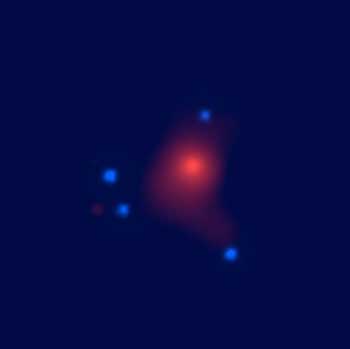 Astronomers are reporting the detection of extragalactic planet-mass objects in a second and third galaxy beyond the Milky Way after the first detection in 2018. With the existing observational resources, it is impossible to directly detect planet-mass objects beyond the Milky Way and to measure its rogue planetary population.
Astronomers are reporting the detection of extragalactic planet-mass objects in a second and third galaxy beyond the Milky Way after the first detection in 2018. With the existing observational resources, it is impossible to directly detect planet-mass objects beyond the Milky Way and to measure its rogue planetary population.
Dec 12th, 2019
Read more
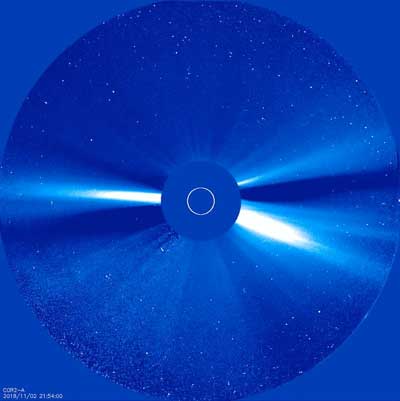 Nearly a year and a half into its mission, Parker Solar Probe has returned gigabytes of data on the Sun and its atmosphere. Following the release of the very first science from the mission, five researchers presented additional new findings from Parker Solar Probe.
Nearly a year and a half into its mission, Parker Solar Probe has returned gigabytes of data on the Sun and its atmosphere. Following the release of the very first science from the mission, five researchers presented additional new findings from Parker Solar Probe.
Dec 12th, 2019
Read more
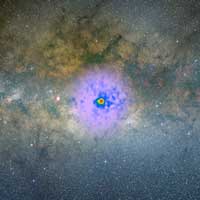 A new analysis puts dark matter back in the game as a possible source of energy excess at the galactic center.
A new analysis puts dark matter back in the game as a possible source of energy excess at the galactic center.
Dec 11th, 2019
Read more
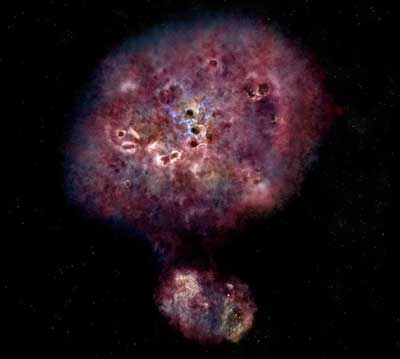 Astronomers have spotted the light of a massive galaxy seen only 970 million years after the Big Bang. This galaxy, called MAMBO-9, is the most distant dusty star-forming galaxy that has ever been observed without the help of a gravitational lens.
Astronomers have spotted the light of a massive galaxy seen only 970 million years after the Big Bang. This galaxy, called MAMBO-9, is the most distant dusty star-forming galaxy that has ever been observed without the help of a gravitational lens.
Dec 11th, 2019
Read more
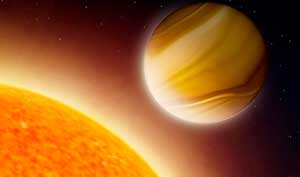 The most extensive survey of atmospheric chemical compositions of exoplanets to date has revealed trends that challenge current theories of planet formation and has implications for the search for water in the solar system and beyond.
The most extensive survey of atmospheric chemical compositions of exoplanets to date has revealed trends that challenge current theories of planet formation and has implications for the search for water in the solar system and beyond.
Dec 11th, 2019
Read more
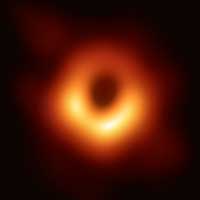 Black holes in the early universe pose a bit of a problem. Based on observations from telescopes on Earth and in space, we know that some black holes grew to be a billion times the mass of the sun just one billion years after the Big Bang. Current models of black hole growth, however, can't explain this speed of growth.
Black holes in the early universe pose a bit of a problem. Based on observations from telescopes on Earth and in space, we know that some black holes grew to be a billion times the mass of the sun just one billion years after the Big Bang. Current models of black hole growth, however, can't explain this speed of growth.
Dec 10th, 2019
Read more
 Scientists discovered a unique neutron star, the magnetic field of which is apparent only when the star is seen under a certain angle relative to the observer.
Scientists discovered a unique neutron star, the magnetic field of which is apparent only when the star is seen under a certain angle relative to the observer.
Dec 9th, 2019
Read more
 Scientists may have figured out how dust particles can stick together to form planets, according to a study that may also help to improve industrial processes.
Scientists may have figured out how dust particles can stick together to form planets, according to a study that may also help to improve industrial processes.
Dec 9th, 2019
Read more
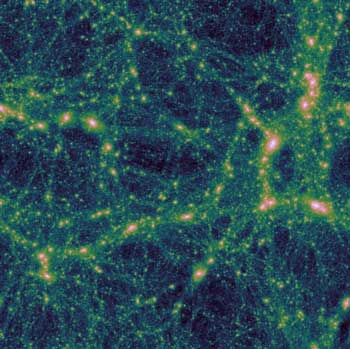 Astronomers have found a special population of dwarf galaxies that could mainly consist baryons within radii of up to tens of thousands of light-years. This contrasts with the normal expectation that such regions should instead be dominated by dark matter.
Astronomers have found a special population of dwarf galaxies that could mainly consist baryons within radii of up to tens of thousands of light-years. This contrasts with the normal expectation that such regions should instead be dominated by dark matter.
Dec 9th, 2019
Read more
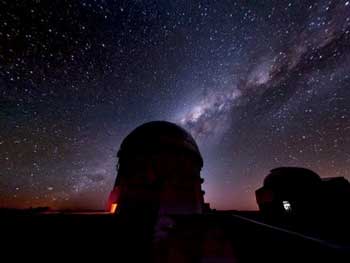 Because we don't know what's pushing the universe outward ever more quickly, 'dark energy' is scientists' shorthand for the mysterious process. To understand the history of our universe, researchers are collaborating with scientists around the globe to build elaborate 3D maps of space and time.
Because we don't know what's pushing the universe outward ever more quickly, 'dark energy' is scientists' shorthand for the mysterious process. To understand the history of our universe, researchers are collaborating with scientists around the globe to build elaborate 3D maps of space and time.
Dec 7th, 2019
Read more
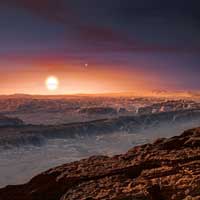 Astronomers have come up with a way to discern life on exoplanets loitering in other cosmic neighborhoods: a spectral field guide.
Astronomers have come up with a way to discern life on exoplanets loitering in other cosmic neighborhoods: a spectral field guide.
Dec 6th, 2019
Read more
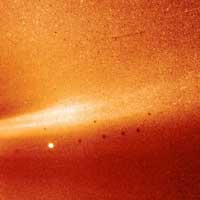 Our closest-ever look inside the sun's corona has unveiled an unexpectedly chaotic world that includes rogue plasma waves, flipping magnetic fields and distant solar winds under the thrall of the sun's rotation.
Our closest-ever look inside the sun's corona has unveiled an unexpectedly chaotic world that includes rogue plasma waves, flipping magnetic fields and distant solar winds under the thrall of the sun's rotation.
Dec 6th, 2019
Read more
 New research suggests that hibernation is a likely option to make deep space exploration a reality.
New research suggests that hibernation is a likely option to make deep space exploration a reality.
Dec 5th, 2019
Read more
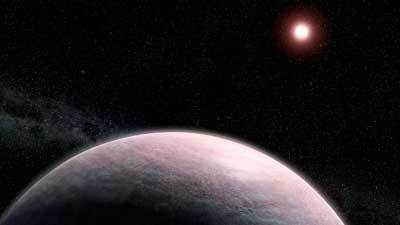 A team of astronomers proposes a new method of using Webb to determine whether a rocky exoplanet has an atmosphere. The technique, which involves measuring the planet's temperature as it passes behind its star and then comes back into view, is significantly faster than more traditional methods of atmospheric detection like transmission spectroscopy.
A team of astronomers proposes a new method of using Webb to determine whether a rocky exoplanet has an atmosphere. The technique, which involves measuring the planet's temperature as it passes behind its star and then comes back into view, is significantly faster than more traditional methods of atmospheric detection like transmission spectroscopy.
Dec 2nd, 2019
Read more
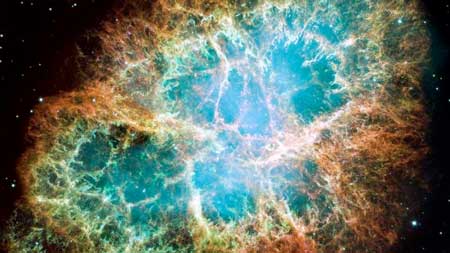 Astrophysicists suggest radiation that lights the densest objects in our universe is powered by the interplay of turbulence and reconnection of super-strong magnetic fields.
Astrophysicists suggest radiation that lights the densest objects in our universe is powered by the interplay of turbulence and reconnection of super-strong magnetic fields.
Nov 27th, 2019
Read more
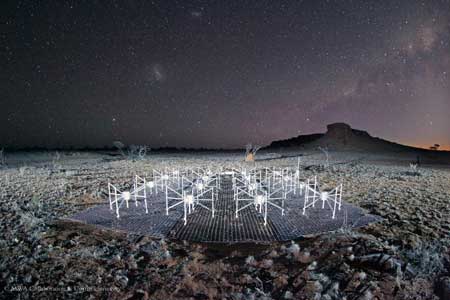 Researchers using the Murchison Widefield Array radio telescope have taken a new and significant step toward detecting a signal from the period in cosmic history when the first stars lit up the universe.
Researchers using the Murchison Widefield Array radio telescope have taken a new and significant step toward detecting a signal from the period in cosmic history when the first stars lit up the universe.
Nov 26th, 2019
Read more
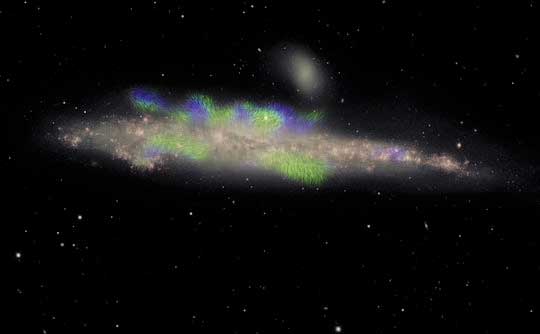 Astronomers have investigated polarized radio emission from the galaxy NGC 4631 at the VLA radio telescope. They detected for the first time a regular magnetic field over scales of several thousands of light years in the halo of NGC 4631.
Astronomers have investigated polarized radio emission from the galaxy NGC 4631 at the VLA radio telescope. They detected for the first time a regular magnetic field over scales of several thousands of light years in the halo of NGC 4631.
Nov 26th, 2019
Read more
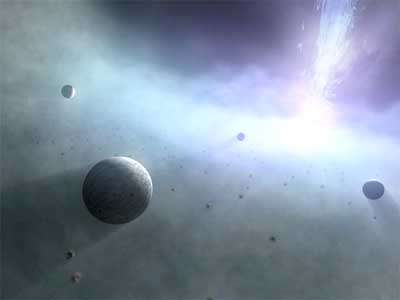 Theoreticians in two different fields defied the common knowledge that planets orbit stars like the Sun. They proposed the possibility of thousands of planets around a supermassive black hole.
Theoreticians in two different fields defied the common knowledge that planets orbit stars like the Sun. They proposed the possibility of thousands of planets around a supermassive black hole.
Nov 25th, 2019
Read more
 Astronomers are reporting the detection of extragalactic planet-mass objects in a second and third galaxy beyond the Milky Way after the first detection in 2018. With the existing observational resources, it is impossible to directly detect planet-mass objects beyond the Milky Way and to measure its rogue planetary population.
Astronomers are reporting the detection of extragalactic planet-mass objects in a second and third galaxy beyond the Milky Way after the first detection in 2018. With the existing observational resources, it is impossible to directly detect planet-mass objects beyond the Milky Way and to measure its rogue planetary population.
 Subscribe to our Space Exploration News feed
Subscribe to our Space Exploration News feed















